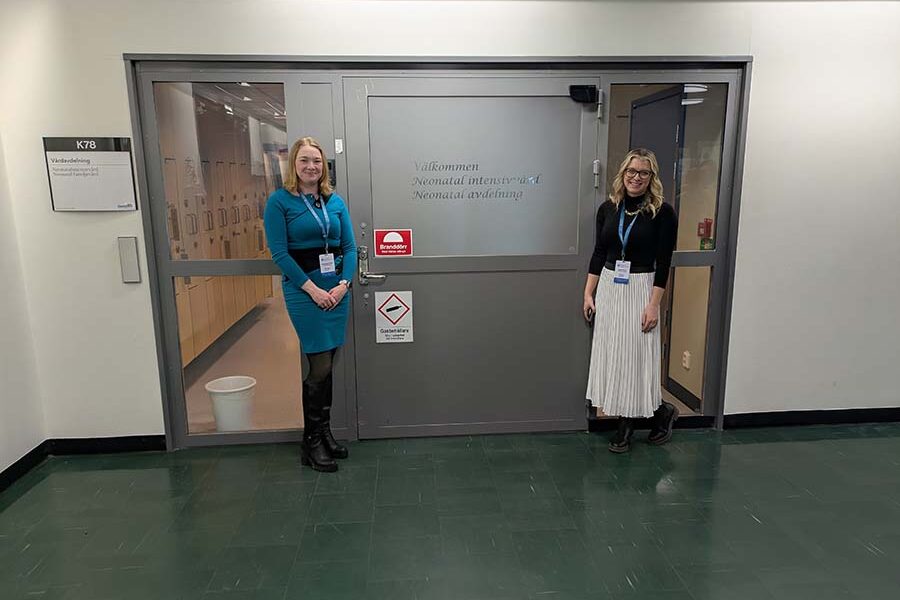Two UNMC College of Nursing graduate students had the chance to gain valuable insights into how health care for infants operates in a different country.
Kortney Curtman and Melinda Pariser-Schmidt, both PhD students with infant-related focuses, spent Feb. 2-7 in Sweden visiting neonatal intensive care units across the country as part of a 22-person delegation assembled by the National Association of Neonatal Nurses.
“This was really groundbreaking for us because Sweden has the lowest rate of neonatal mortality in the world, so they obviously do many, many things very well,” Pariser-Schmidt said. “We were really excited to go and learn and figure out what nuggets we can bring back and try to disseminate into our respective practices and the organizations we connect with.”
One of the starkest differences they noted between NICUs in the United States and Sweden was the role of the nurse. In the U.S., Curtman said, the nurse’s primary role in the NICU is to care for the patient whereas in Sweden, nurses empower family members to care for the child while in the unit.
Curtman added that care in Sweden, such as feeding, diaper changes and taking temperature, is done based on how the infant feels.
“They’re more individualized for their care for their infants, whereas we’re more standardized care,” she said.
Pariser-Schmidt said they’ve been able to take some of the lessons learned in Sweden and apply them to their own practices. One example she gave was encouraging a parent to pick up their child out of the bed instead of having the child placed in their laps. Within a week, the parents were suctioning out the baby’s nose and doing some other small tasks.
“These families, they only know what we tell them and show them,” she said. “So if you have a baby and you’re in the NICU, this model of care being shown to you is that you’re a primary caregiver for your infant and you embody that role.”
Curtman said she too has encouraged parents to do some of the tasks in the NICU because they’ll be the primary caregivers once the child is discharged.
“I think they feel more like a parent when they’re actually able to conduct these things for their baby,” she said, “so I want to empower you to feel like the mom. I want you to be the person who is taking care of your baby, and I’m here to teach you how to do that.”
Through sprinkling some ideas into their own nursing and sharing what they experienced with fellow nurses back in the United States, Curtman and Pariser-Schmidt said they saw the importance of seeing how health care operates in other cultures.
“No matter where you’re at, you should be getting the best care available,” Curtman said.
“There is an ability to collaborate on a global level, especially from a nursing lens,” Pariser-Schmidt added. “Having that direct, bedside nursing voice to inform practice and policy is critical, and it’s something that isn’t happening enough.
“I can’t imagine how progress can take place without global collaboration.”
